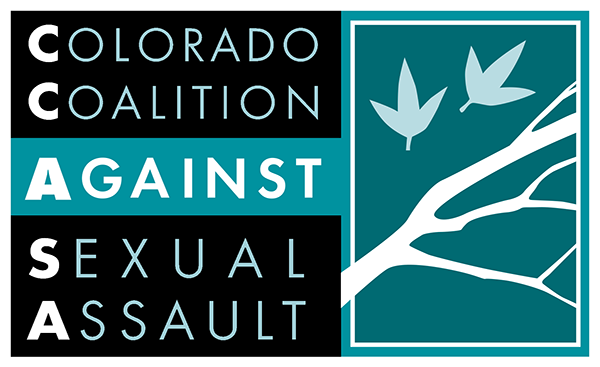Written by Gina Lopez, CCASA Systems Response Program Director
Taking the long drive from Towaoc to the Nambe Pueblo homelands in Espanola, New Mexico, felt like a great time to be in remembrance and awe of the beautiful landscape.
I took to the roads to answer a call from my colleagues in the New Mexico Pueblos to come present at their annual Responding to Sexual Assault in Tribal Communities training. The Nambe Pueblo Healthy Families and the New Mexico Coalition of SA Programs hosted this conference. Initially, we discussed bringing a 101 SA in Tribal/Indigenous communities training, but then we talked about a topic I had provided at a previous conference during the pandemic.
This was my Visibility of Survivors in respect to Native/Indigenous identity and accessing traditional ceremony and healing modalities. We start with grounding in the foundations found across all Tribal communities’ beliefs in the importance of balance and harmony and then talking about how the impacts of colonization have shifted access, even poisoning our views of one another in Tribal communities.
We visited the time before colonization, where we freely gathered medicines and practiced our healing and treatment by living in balance with the elements around us. The ways that Tribal bands had even adopted folks from other Tribes who had been abandoned, including non-Indian people. The kindness and acceptance of Native/Indigenous people have been long documented in bringing folks in with their people, and those folks would take on the identity of the adopting Tribe; their language, their customs, and their dress.
Long before the federal government existed, Tribal communities did not view human beings as percentages and did not create barriers to one another in the quantification of identity. What we now know as the practice of blood quantum in Tribal enrollment and membership into Tribes was imposed by the federal government.
This is an important conversation that I feel we, Tribal community members, must continue having, even more so today. Today, no one is safe from the ways identity and processes impact whole families, and we are in familiar times. Few understand the new call for deportation and identity systems like the Native/Indigenous Tribal people today.
Blood Quantum is a process by which membership to a Tribe is established and is based on what percentage of Indian blood a person/child has inherited from their parents. In my workshop topic, I ask us Tribal advocates, responders, and community members to remember that blood quantum and Tribal membership systems were not traditional to any of us and that the intention was: “Congress had hoped that by setting an Indian blood standard, Indians would intermarry/assimilate to be eventually defined out of existence” (1887 General Allotment Act).
Blood quantum was meant to erase us from existence so that we no longer have rightful claims to our lands, our water, our medicines, and our ceremonies. It was never about who was Pueblo enough, who was Ute enough, who was Navajo enough…it is always about what is the quickest way to be rid of these Indians. And now, we internalize this process and place value on who is full-blooded versus who is not; who belongs and who does not, and this can impact how survivors in our communities access healing and ceremony.
I asked us all to center these facts of our history and how those centuries-old policies continue to shape how we identify who belongs to our people, especially children. We also talked about those children who grew up away from their people and homelands due to foster homes, and adoption out of the community, and are looking for ways to return home. How do we hold their space in our healing circles? How do we hold welcoming and informed spaces in our programs and advocacy where identity is concerned?
It wasn’t too long ago that it was dangerous and illegal for us to practice our ceremonies, possess feathers, and gather medicines. I ask us to hold this courage that continues within our hearts and among our people, lands, and water, that our identity is more than a process, and that we are never in balance where some of us are left out.


The views, thoughts, and opinions expressed in this blog belong solely to the individual authors and do not necessarily reflect the official policy or position of the Colorado Coalition Against Sexual Assault (CCASA). The content is provided for informational and educational purposes only and should not be construed as legal, medical, or professional advice. CCASA appreciates the diverse voices that contribute to this platform and encourages thoughtful dialogue, but cannot guarantee the completeness or accuracy of all shared content.

